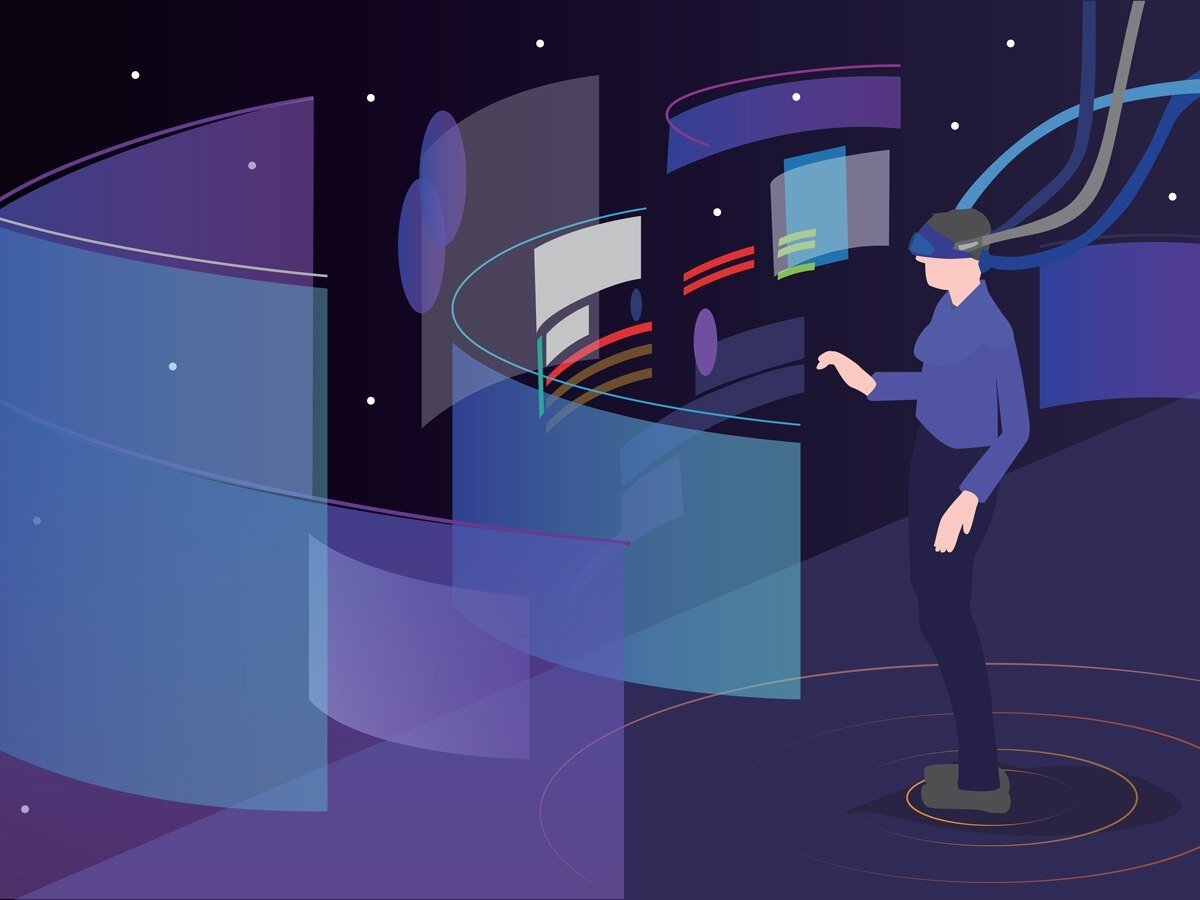By: Lindsay Angelo, MBA, Growth Strategist & Keynote Speaker
To say that the future of retail is transforming is an understatement; the last two years have been a revolution of sorts. And now....enter the metaverse.
In this blog post, I'll explore how the metaverse will impact the retail industry and retail experiences in the years ahead.
Afterall, "digital transformation" is so 2021.
First, what is the metaverse?
The metaverse is the virtual reality that we are all immersed in every day, except it's not yet immersive enough.
Second, how does the metaverse impact retail?
First of all, let us assume a future where technology has advanced to such an extent that people can easily create and share digital avatars (called "resavatars" - think....your digital twin), which they use for interacting with other users across different realms—or digital worlds—in cyberspace: one realm might be Facebook; another realm could be Pinterest; while still others might include travel sites or video games like Minecraft. Soon, we'll see all tech giants and many tech platforms assume their position in the space with a variety of business strategies. At the spark of Mark Zuckerberg, key business decisions are percolating in the board room!
Users would also have full control over their digital avatar identity by being able to customize its appearance through clothing brands and even accessories from IKEA. One's identity is no longer constrained by physical appearance or social networks.
This opens up a range of possibilities for retail and consumerism in the metaverse. For example, imagine being able to try on clothes from different retailers without having to leave your home, all vis a vis a virtual experience. Simply go into a virtual dressing room and select the clothing you want to try on from the retailer's website. You could even see how the clothes look on you by using your own resavatar.
Or, imagine being able to purchase furniture and home decor without having to leave your house, all from a virtual space, a digital environment of sorts. You could simply go into a virtual showroom, select the furniture or decor you want, and have it delivered to your home.
What does the metaverse mean for retail?
There are several implications for the retail industry:
The first is that retailers will be able to reach customers in a deeper and more personalized manner. They will be able - through resavatars and geo-location tools like Foursquare, Google Latitude or Facebook Places - to create virtual stores and storefronts that can deliver targeted advertising based on the user's tastes and preferences.
Combined with other emerging technologies such as augmented reality (AR), retailers are set up for success by being able to provide users with an enhanced shopping experience that is both entertaining and rewarding! With AR, consumers could have access not only to information about products but also additional content – videos of how something works; interactive features showing off different color combinations – allowing shoppers to make better informed purchasing decisions. How about a 3D personalized experience with that couture?!
This is not to say that physical retail stores or physical spaces will be obsolete, but rather they are going to need to figure out how they can complement the online shopping experience and virtual stores with a more immersive and interactive one. The Metaverse is redefining the Customer Experience, morphing consumer behavior - and physical reality will need to adapt to compete.
The second implication for retail is that it will become more social. As people spend more time in digital spaces, they will want to interact with others in those spaces and share their variety of experiences. This desire for social interaction, social experiences and social spaces is already being seen today in popular sites like Second Life, which has over 16 million registered users . In this way, retailers and retail brands can create branded communities and branded experiences where customers can engage with each other and with the retailer's products. These immersive spaces will become the norm.
So, what will your signature digital experience in the metaverse embody?
The third implication is that retail will become more experiential...that is, experiential retail, a trend that we've talked about for almost a decade now, has levelled up. Expect to see even more of a rise in immersive marketing - that is product experiences and education that go beyond the display. For example, Gap has been using augmented reality in its physical stores to allow customers to try on different clothes combinations virtually before making a purchase. Think this, on steroids! By providing an immersive experience, retailers are able to create an emotional connection with the customer that can result in increased loyalty, sales and revenue streams. There is an abundance of opportunity to be realized at the intersection of digital and physical experiences.
So, who is the metaverse consumer anyways?
The metaverse consumer is anyone and everyone.
As we've seen, the implications of the metaverse are far-reaching and will affect every aspect of our lives, including how we shop. But who is this new type of consumer that the metaverse is catering to? The answer is simple: it's everyone. Everyone has a different personality, interests, and needs, which is why the metaverse will offer something for everyone. Whether you're the type of person who enjoys trying on clothes before you buy them or you just want to shop from the comfort of your own home, the metaverse has you covered.
It's also important to note that the metaverse is not just for millennials, it will be a consumer trend far more encompassing.
While it's true that this new technology will appeal to a younger generation, there are also many older people who are looking forward to using virtual worlds and virtual products as a way to stay connected with their families and friends. The metaverse is for everyone, regardless of age or lifestyle. It also meets pandemic-weary consumers where they are - in the comfort of their homes or wherever they may be.
The metaverse is going to have a profound impact on retail as we know it, changing the way we shop both online and offline. With its ability to provide immersive experiences that encourage social interaction, it's the perfect parallel reality for retailers to create deeper connections with their customers that go beyond simply selling.
So, what is your metaverse play? Need help figuring it out or looking for a metaverse speaking for your next event? Get in touch! Curious to see the top 30 futurists of 2023? Click here.
FAQs
-
Metaverse retail is the use of virtual worlds to purchase and sell products and services.
For example, imagine you're shopping for a new pair of shoes. Rather than going to a physical store, you could go to a virtual world where you can try on different pairs until you find the perfect ones. Once you've made your selection, simply click and collect.
-
Yes! In fact, one of the main attractions of the metaverse is that you can shop from anywhere.
Whether you're at home, on vacation, or just out running errands, you can take advantage of the many retailers who have a presence in the metaverse.
Not only that, but thanks to the power of virtual reality, you can even shop in worlds that are designed specifically for retail. This means that you can take your time browsing through items and compare prices without having to worry about being disturbed.
-
The metaverse is a place where people can interact and do business in a variety of ways, including through the use of NFTs.
Non-fungible tokens are digital assets that are unique and cannot be replaced. They can be used to represent different types of virtual assets.
The metaverse and the virtual world it encompasses will allow people to showcase digital assets via non-fungible tokens (NFTs). A nonfungible token allows proof of ownership over an asset. Blockchain technology and cryptocurrencies will also be a fundamental part of the metaverse because they allow ownership of digital assets which creates incentives to invest.
-
The metaverse is going to change the way retailers do business, and marketing is no exception.
For example, imagine you're a retailer who wants to create an immersive experience for your customers. You could use the metaverse to create a virtual world that simulates your store or product. This would allow customers to try before they buy and get a feel for what your brand is all about vis a vis your virtual environment.
You could also use the metaverse to create branded worlds and a digital space specifically designed for marketing purposes. These worlds could be used to promote products (virtual items), engage customers, and build loyalty. The metaverse is a powerful complement to "real life". It can be a powerful component to your marketing strategy, complementing social media platforms, email marketing, content marketing, paid ads and other forms.
-
The immersive web is another term used to describe a version of the online world that incorporates advanced technologies to improve user engagement and blur the line between the user's physical reality and digital environment.
About the Author
Lindsay provides growth consulting, strategic foresight and speaking services to purpose-driven brands. Named a global innovation leader and Women to Watch, you will find her at the intersection of strategy, story-telling and innovation. When she’s not collaborating with clients, she’s hitting TEDx and other stages across North America to deliver keynotes on the future of consumerism, strategy and innovation. Prior to advising and providing brand and marketing consulting services, Lindsay spent six years at lululemon crafting their global growth strategy, exploring new marketplace opportunities and growing the company into the number one yoga wear player in the world. Her experiences culminate in what she refers to as her sweet spot - where strategy, innovation and insights intersect, where the rational meets the emotive, where facts meet insights and where logic meets creativity. One of few influential women in tech, Lindsay is amongst a small cohort of metaverse experts delivering thoughts leadership on the metaverse's impact on consumerism and retail.





